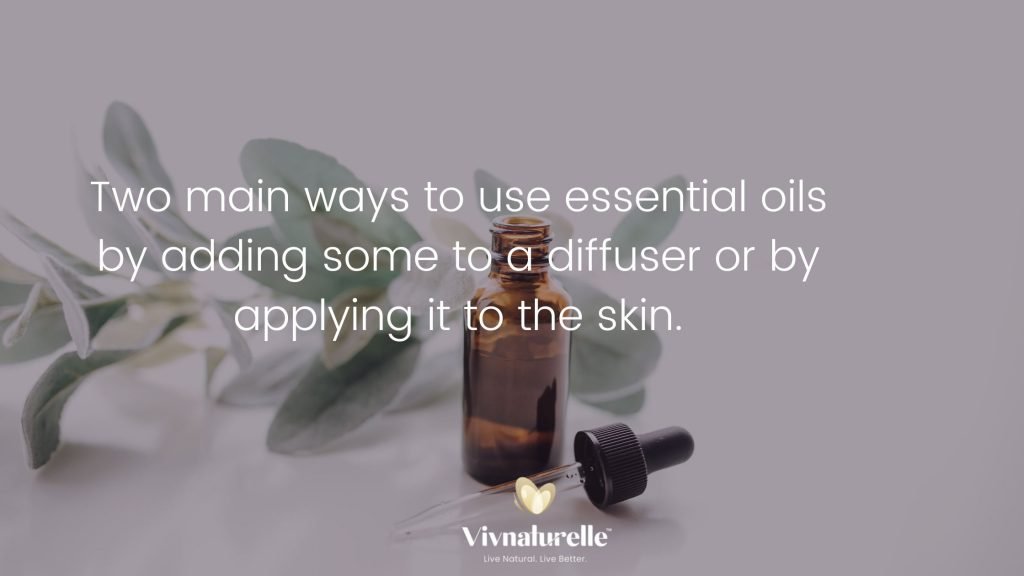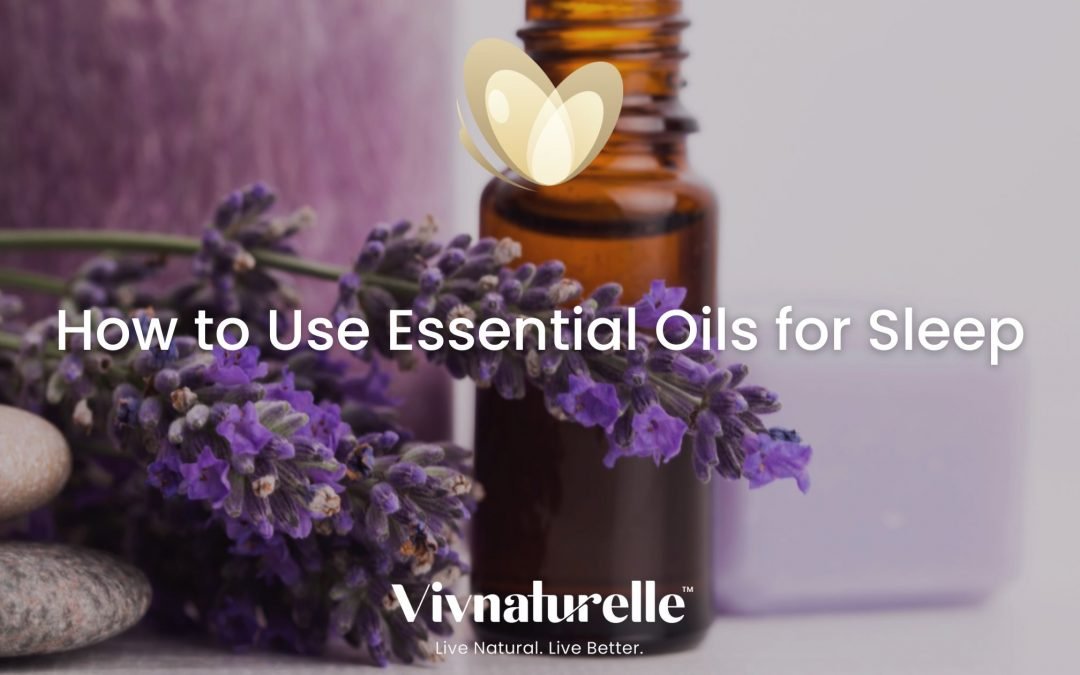Learning how to use essential oils for sleep is extremely important if you want to calm and heal your body and brain to improve sleep quality. By using natural methods, you can improve your sleep and fight insomnia. If you use essential oils on a regural basis, you can have the deep sleep that you always wanted!
Essential oils are natural compounds extracted from plants. They are key component in aromatherapy. Essential oils have been around for hundreds of years. They are used in various cultures for many purposes, such as cooking, perfumes, medicine, and also cosmetics. If you are one of the millions of people who have trouble sleeping, think about incorporating aromatherapy essential oils into your nighttime routine to help you sleep better.
There are many different essential oils and many promote sleep. You should bear in mind that essential oils are very potent, so you should dilute them in a carrier oil of your preference before applying them to your skin! You can also dilute them in water and use them in a diffuser or spray bottle.
Essential oils for sleep:
1. Lavender Oil
- Relaxing effects
- Increases slow-wave sleep
- Slowing heart rate and promoting muscle relaxation
- Promotes restful sleep and elevates daytime alertness
- Reduces anxiety
2. Chamomile Oil
- Reduces anxiety and stress
- Improves sleep and tackles insomnia
- Used as a sedative
3. Sweet Marjoram Oil
- Has calming qualities and is good for treating insomnia
- Sweet fragrance that soothes both physically and mentally
4. Bergamot Oil
- Unlike other citrus essential oils that stimulate the body, bergamot has a relaxing effect.
- Bergamot essential oil lowers the heart rate and blood pressure which is necessary for good sleep.
5. Clary Sage Oil
- Antidepressant effects.
- Natural sedative as it decreases cortisol levels which are linked to stress.
- Helps with relaxation
6. Valerian Oil
- Inhibit the breakdown of GABA, a neurotransmitter required for sleep
7. Sandalwood Oil
- Relieves stress and anxiety
- Has a sedative effect and reduces insomnia.
8. Ylang Ylang Oil
- Soothes and decreases stress and promotes sleep
- Lowers blood pressure and heart rate
9. Jasmine Oil
- Promotes sleep and tackles insomnia.
10. Eucalyptus Oil
- Clear sinuses and airways to facilitate breathing and get a quality night’s sleep.
- Relieves pain
11. Peppermint Oil
- Has an anti-inflammatory effect that helps clear the airways and for proper breathing and sleep.
How To Use Essential Oils for Sleep
If you have doubts regarding how to use essential oils for sleep, here are a few tips that can help you when using essential oils. You can click here to understand many other ways to use essential oils.

Inhaling
Diffusers are often used to diffuse essential oils to inhale them, which is the preferred method for many people. Once the oil molecules are in the diffuser, you can breathe them in as the oil molecules disperse in the air. If you use warm water it is beneficial for the nose and helps with dryness and irritation. There are many types of diffusers such as ultrasonic, oil burner and reed diffusers, in which all of them work in a similar way. You can turn on your diffuser at least 30 minutes before going to bed, to enhance the aromatherapy effects!
If you don’t like diffusers, you can always spray essential oils on your pillow or mattress. This way, you can incorporate aromatherapy into your bedtime routine. To create essential oil spray, you can combine essential oils with warm water and gently mix them in a spray bottle! Spraying the pillow will give you a chance to inhale the essential oils while sleeping! To avoid any skin irritation, it’s reccomended to spray the underside of the pillow, otherwise you can spray around your room.
Direct application to the skin
It is always very relaxing and soothing for most people- when they apply essential oils to pulse points like the wrists, neck or behind the ears. You can also massage the body with diluted essential oils which improve mental health, reduce anxiety and cortisol levels and decrease heart rate- leading to a feeling of relaxation which promotes better sleep.
This method allows the essential oil to be absorbed by the skin. The volatile nature of the essential oil means that you will inhale its aroma while applying to your body. To avoid skin irritation, always dilute with a carrier oil and check after application for any allergic reactions.
If you don’t prefer using oil for massage, you can mix the essential oils with your lotion, which can moisturise your skin and add a nice aroma. Just add a few drops of your preferred essential oil to a lotion or moisturiser!
Ingesting
Ingesting is another effective way to use essential oils for sleep. However, it is advisable to do this with the supervision of a qualified medical professional. Ingesting essential oil can be risky and toxic without help from experts. It depends on which oil to use to help you sleep. Some essential oils have calming effects that aid in sleep, while others help clear your airway so that you can breathe more easily, allowing you to relax and fall asleep more quickly.

Final Thoughts
Through the olfactory system, essential oils have been proven to cause the brain to produce neurotransmitters that improve mood. Aromatherapy treatment can calm and heal you if you know how to use essential oils effectively for sleep. It also produces melatonin necessary for a quality night’s sleep.
Nevertheless, you should choose the right essential oil depending on your preference or you can make your sleep blend. Essential oils are concentrated and potent and may harm your skin if applied directly, so you should first mix them with a carrier oil or dilute them in water. Always do a patch test before using essential oil!
You can read more from the Sleep Association, intrepid mental health and Healthline.


